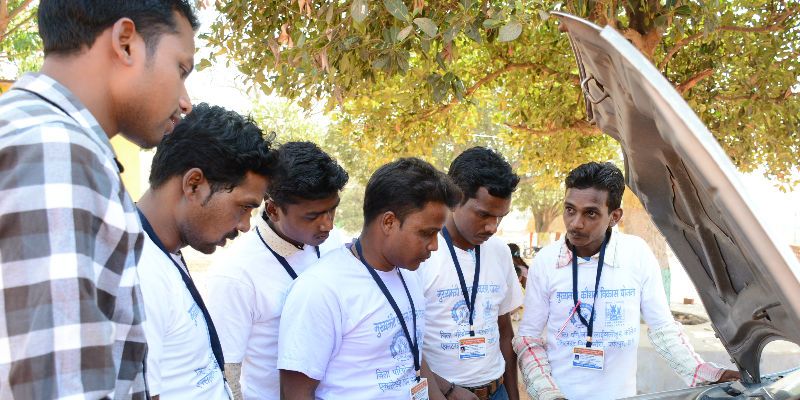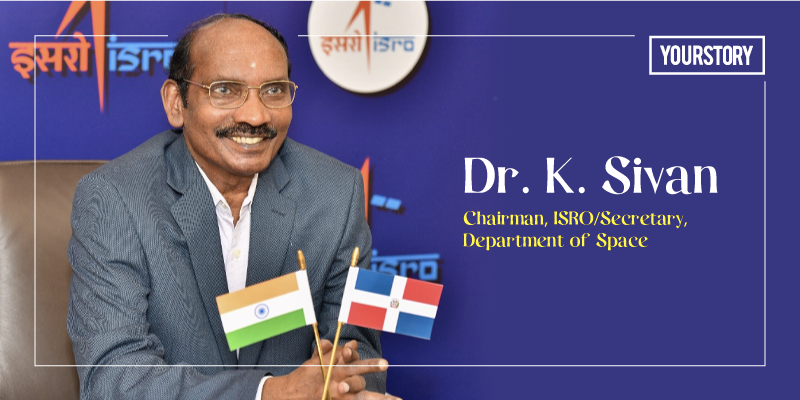India’s only state to enact the Right to Skill, Chhattisgarh shows why skilling is as important as education
This article is part of The Chhattisgarh Story series (coming soon to YourStory)
Yogeshwari Dhaneria is an inspiration for young girls girls in Kanker, a drought-prone and poverty-stricken district in Chhattisgarh. According to official estimates, nearly 50 per cent of the population in rural Kanker is Below the Poverty Line (BPL)and low income, stagnant productivity and unemployment are an everyday reality. In this scenario, Yogeshwari’s story comes as bright spot.
This young girl from a tribal BPL family works as a sales executive in a well-known boutique in Jagdalpur, a profession that is a distant dream for many from her village. It was a skill development course specialising in the retail sector, offered by the Chhattisgarh State Skill Development Authority (CSSDA) that transformed her life. Today, getting inducted into the formal economy and earning a regular income has empowered her to contribute to the betterment of her family’s socio-economic status.

Bheshaj Kumar Diwan from Bhatagaon village in Chhattisgarh’s Dhamtari district has a similar story. After he enrolled in a skill development course specialising in construction, he got employment with L&T Infrastructure at Hyderabad and earns Rs 11,000 as monthly salary. If not for the course, Bheshaj would have been yet another daily-wage construction labourer working for a pittance, while battling harsh working conditions and uncertainty of regular employment.
A new opportunity for citizens
Today, there are thousands of similar stories showcasing the success and impact of Chhattisgarh’s decision to enact the right to skill. In fact, it is the first and only state in India so far to enact a law to provide training in various skills to its unemployed youth. As part of the Chhattisgarh Right of Youth to Skill Development Act 2013, the State Government has instituted a well-designed action framework to provide opportunities for skill development for its citizens between 14 and 45 years. Under the Act, there are 800+ registered courses under 109 categories such as Information Technology, Electrical, Beauty Culture, Textile, Fashion Design, Banking and Accounting, Medical and Nursing, Sericulture, and Poultry Farming. These courses are free of cost for the youth.
Those seeking to be trained should have at least studied till Class 8.. After completing the beginner’s course in the area of their interest, participants can also opt for intermediary and advanced courses. The programme is being implemented through CSSDA and is chaired by the Chief Minister of the state. There are about 2,600+ Vocational Training Providers (VTPs) overseeing the application process, of which 1,300+ are attached to the government and 1,200+ are private.

Those interested must submit an application to the government-approved VTP, and within 90 days, the applicant will be informed about the status of his or her application. The District Skill Development Authority has been given the responsibility of overseeing and supervising the implementation of the programme in each district.
Additionally, a well-planned mobilisation outreach calendar at the district and block level ensures that information about the livelihood colleges reaches those at the bottom of the social pyramid. Post the mobilisation programme, beneficiaries are often identified and given counselling at the block and district level, registered on the CSSDA portal and allocated a VTP from the closest location. The user-friendly website and the transparent and paperless documentation process make it fairly simple for the beneficiaries to enrol themselves and participate in the training programme.
Getting skilled to tap newer opportunities
Nitish Kumar worked at a computer store in Raipur. When the business owner shut shop to open up a garment store, Nitish was given the option of either finding employment elsewhere or working as a salesperson in the new shop. Nitish chose the former option, but found it difficult to get a job. It was then that he got to know about the skill development programme. He came to Pratham Arora Center for learning (PACE), Chhattisgarh, a training centre affiliated to the National Skill Development Corporation and a key delivery centre of the State Government’s Skill Development Programme. Speaking to the facilitators and seniors about future prospects of doing a course at PACE he realised that in addition to placement opportunities, the course could open up the possibility of him becoming a micro-entrepreneur and starting his own venture. So, while he plans to take up a job immediately, he also plans to start his own venture after a year or two. Nitish has enrolled himself for an electrical and welding course at the college.
See what students like Nitish have to say about being part of PACE and why the skill development programme is a great opportunity.
Livelihood Colleges
CSSDA has instituted livelihood colleges in all the 27 districts in the state, where youth get skill enhancement training. Following this, they either get employment in recognised enterprises or go on to become micro entrepreneurs. The colleges also have hostel facilities so even youth from remote villages can attend.
The district livelihood colleges are the designated partner for the Pradhan Mantri Kaushal Vikas Yojana (PMKVY) scheme, the flagship scheme of the Ministry of Skill Development & Entrepreneurship (MSDE), aimed at enabling a large number of Indian youth to take up industry-relevant skill training.
In the next phase of the programme, the livelihood colleges are being developed as Centres of Excellence, by empanelling skilled a qualified national-level trainers, developing standard training materials in both Hindi and English, instituting a robust placement tracking system and online and establishing Entrepreneurship Development Cells at these colleges.

As a logical extension of the skill development programme, the state government also conducts regular placement camps or Rozgar Melas at the division and district level, in collaboration with corporates and employment officers. So far, 1,49,714 (44 percent) beneficiaries have been placed from a total of 3,38,580 who were trained since the programme began.The success of the Rozgar Melas has prompted CSSDA to make it a regular event at the District and Division levels.
Reaching out to empower the fragmented sections of the society
In addition to reaching out to the youth of the state, CSSDA has gone a step ahead to include people from marginalised and deprived sections of society. It also conducts, regular skill development programmes in five central and 16 district jails and so far has trained nearly 5,000 prisoners in the areas of construction, fabrication and garment making. Training programmes are also conducted for destitute women, differently-abled people and transgenders, primarily in the areas of garment making and beauty and wellness.

Naxalite insurgency has been one of the key developmental hurdles for Chhattisgarh, and the state has been combating this challenge through a combination of law and order and socio-economic strategies. With illiteracy and unemployment being touted as one of the catalysts that led to the rise of Naxalism, the government is working extensively in this area, and also ensuring that the skill development programme caters to surrendered Naxals and people living in the Left-Wing Extremism (LWE) affected districts. So far, 2200+ people have been trained in the districts, of which 1700+ have been placed. Also, more than 500 Naxals who had previously surrendered to the government have been given training in the areas of automotive, construction and plastic processing.
Essaying a new chronicle
For decades, disparities in education, income, and social standing have been a part of the Indian social fabric. Governments, non-profits and private players are doing their bit to combat this. While their initiatives have definitely made a positive difference, there is a lot that remains to be achieved.
In this context, Chhattisgarh’s decision to enact the right to skill comes as a strong commitment to take the narrative of positive change a step further. What’s more, the commitment is not just on paper, but has translated into action on ground. The well-designed framework and the on-going implementation of the programme can be a great example of how administrations can take on the responsibility to effect positive change.











